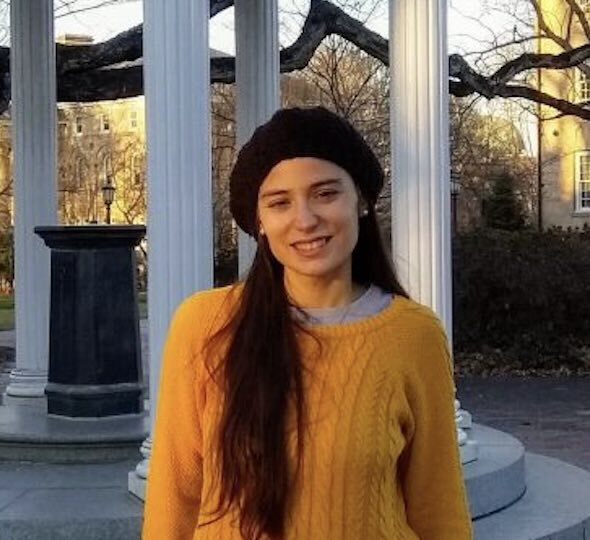Is Accountability Polarizing? What Bolsonaro’s Indictment Can Tell Us
Holding anti-democratic leaders accountable is often seen as a risky endeavor. But a recent study in Brazil complicates that assumption.

Earlier this month, Brazil’s former president, Jair Bolsonaro, left the hospital after another round of surgery due to ongoing complications following his stabbing during his first presidential campaign in 2018. As he left the hospital, he called once again for amnesty for his supporters who stormed the capital in January 2023 after his defeat in the 2022 presidential election.
While Bolsonaro calls for amnesty for his supporters, he continues to face his own legal troubles. On Feb. 18, Brazil’s prosecutor-general charged Bolsonaro and 33 of his co-conspirators over a coup attempt following his 2022 election loss. The allegations include fomenting the memorable Jan. 8 Capital Riot in Brasília in 2023, a plot to poison his successor President Lula da Silva, and plans to kill a Supreme Court justice. In March, Brazil’s top court decided that Bolsonaro would face a trial for these actions.
Bolsonaro’s impending trial is just the latest chapter in Brazil’s search for accountability for Bolsonaro’s attempts to undermine democracy following a 2023 high court decision to ban Bolsonaro from running for office until 2030.
Although we will not know the decision of the court case and legal implications for some time, the announcement of charges against Bolsonaro has already seemed to engender strong, divided responses from the public. For example, in the weeks following the announcement, Bolsonaro led a rally of his supporters along Copacabana Beach, with an estimated attendance of 18,000 individuals (although he claimed it was closer to 40,000).
While these news reports and other anecdotal evidence appear compelling, systematic, data-driven research evaluating the impact of these charges on public opinion has been limited. Have these developments systematically affected public opinion? Do moves to hold anti-democratic actors accountable have implications for public support for democracy?
On the one hand, constitutional and judicial accountability measures may show voters that institutions are functioning as intended and properly defending democracy. On the other hand, supporters of anti-democratic leaders may see such accountability mechanisms as politically motivated attempts to undermine their leaders. In fact, this has precedent in Brazil, where citizens in 2014 were divided in their support of the “Operation Car Wash” (Lava Jato, in Portuguese) corruption charges along partisan lines. Workers’ Party (PT) supporters perceived the decision to prosecute their allies as unjust “lawfare.”
Unpacking the implications of accountability measures on citizen attitudes is crucial to understanding the democratic erosion that is commonplace in many countries around the world today. In 2020, for example, the Hungarian Parliament granted President Viktor Orbán the temporary power to rule by decree, part of a broader trend of democratic backsliding and disappearing judicial independence. In El Salvador, President Nayib Bukele has consolidated power by removing and replacing judges intended to be independent checks on executive power. But unfortunately less common are institutional moves to hold these anti-democratic actors accountable. The situation in Brazil provides political scientists a unique opportunity to study how the public reacts to these events.
To investigate these questions, the authors—a team of political scientists based at the University of Texas-Austin, Tulane University, and the Universidad Católica del Uruguay—surveyed a diverse range of 2,000 Brazilian citizens nationwide. Our survey included questions regarding support for democracy, partisanship, and other political attitudes. The survey process was underway when the charges against Bolsonaro were announced. This created a natural experiment, the term given to a situation in which a real-word event divides people into randomly assigned affected or unaffected groups, allowing us to compare the democratic attitudes of citizens right before the announcement to those right after. In particular, we were able to examine not only general attitudes but also attitudes among those who voted for Bolsonaro in 2022 (his supporters) and those who did not.
Our research shows a brighter-than-expected picture. While we originally expected the coup charges to polarize attitudes and undermine democratic support among Bolsonaro’s backers, our research indicated that the announcement of the charges did little to shake support for democracy among Bolsonaro voters, and bolstered democratic support among those who did not vote for him. This was a surprising finding, given that confidence in democratic institutions—such as elections—has declined in Brazil in recent years.
Holding anti-democratic leaders accountable is often seen as a risky endeavor. Scholars and pundits have previously highlighted the risks of these actions, as they may alienate segments of the population, increase polarization, or generate backlash against those who spearhead accountability proceedings. But this recent Brazilian episode, in contrast, suggests the risk with respect to public opinion is minimal—and there may even be a benefit in terms of solidifying citizens’ democratic attitudes. This remains relevant not only in Brazil as the legal proceedings continue but also globally as similar measures may be weighed in countries facing similar challenges.
The Impacts of Charges Against Bolsonaro
Several studies regarding public opinion have suggested that partisan loyalties may lead voters to reject democratic institutions or processes that target their preferred leaders. For example, past research has shown that support for the judicial overhaul in Israel was highest among those with strong attachments to Prime Minister Benjamin Netanyahu. More generally, research has consistently shown that citizens process information in ways that are consistent with their partisan preferences, tending to favor information that portrays their own groups and loyalties in a positive light: Some researchers have even said that “voters are partisans first and democrats only second.”
Our survey of over 2,000 Brazilians—including Bolsonaro and non-Bolsonaro voters—tested these arguments in the context of Bolsonaro’s indictment. The survey contained a robust series of questions regarding individuals’ support for democracy as a system and their feelings toward specific components of democracy. For example, individuals were asked how important to society overall they would rank (a) free and fair elections, (b) the capacity to criticize those in power, and (c) a strong political opposition. They were also asked how much they agree with the statement: “Democracy may have problems, but it is preferable to any other form of government.” We also asked individuals for information regarding who they voted for in the 2022 election and to place themselves on a left-right ideological scale.
Our survey launched in early February and was already in progress when the government announced Bolsonaro’s indictment on Feb. 18. The timing of the charges represented an “unexpected event” during our survey. Individuals knew an investigation into Bolsonaro was ongoing, but they did not know if it would result in an indictment, when that might happen, or what the exact charges would be. In our study, we leveraged Google Trends data to demonstrate that information about the charges proliferated widely after the announcement, with massive spikes in interest in terms like “coup d’etat” and Bolsonaro’s name online. After the charges hit the front page of almost every major Brazilian newspaper, a natural experiment presented itself: The ongoing survey allowed us to test the effect of accountability measures on democratic attitudes.
Previous analysts have suggested that this accountability process could upset and mobilize Bolsonaro supporters. With the 2026 national elections only a year and a half away—and various family members and allies of Bolsonaro predicted to run for office—there could be potential electoral consequences downstream, as Bolsonaro tries to rally his base. This could be consequential, particularly as support for President Lula has steadily declined.
But in contrast to this, a comparison of attitudes of those surveyed only days before the announcement with those surveyed directly after the announcement concluded that support for democracy among Bolsonaro supporters did not change. This is particularly notable, as support for democracy among Bolsonaro voters was already on par with support among non-Bolsonaro voters. Before the announcement, 74 percent of Bolsonaro voters in our sample agreed with the idea that democracy is preferable to any other form of government, similar to those who did not vote for him (72 percent). Moreover, 98 percent of Bolsonaro voters stated that free and fair elections were important. In all, the survey analysis yielded no evidence that these accountability measures triggered a democratic backlash among Bolsonaro’s base.
For surveyed Brazilians who did not vote for Bolsonaro, a pre- and post-announcement comparison showed that the announcement increased support for democracy. First-round voters constituted about 56 percent of the population. This shift is explained largely by growing endorsement of key liberal-democratic principles, such as the importance of criticizing those in power and the value of free and fair elections. In all, this suggests that not only are there limited risks in alienating individuals like Bolsonaro supporters, but accountability measures represent opportunities to shore up support for democracy among other voters.
Our results do show, however, that these effects may be short lived. As we continued to survey individuals in the days and weeks after the announcement, the size of the effects shrank as time went by. That is to say, any boost in support for democracy may not be long term, and more systematic, impactful measures than an indictment may be required to fundamentally change attitudes. Despite this caveat for the potential benefits to democratic support for accountability mechanisms, our analysis showed that limited risks remain constant. Bolsonaro voters remained unchanged no matter the time frame we looked at.
These findings are meaningful, particularly because following Bolsonaro’s 2018 win, experts warned of the country experiencing an “illiberal backlash.” Bolsonaro won that year’s presidential election with a populist platform centering on anti-corruption and tough-on-crime approaches. Leading up to the election, support for democracy had plummeted. But perhaps these moves to hold Bolsonaro accountable following his alleged crimes is underpinning new faith. Indeed, recent data suggests that support for democracy in recent years is higher in Brazil than among many of its regional peers. Our research suggests that democratic accountability processes may benefit this overall trend. Although others have feared this process may foment large-scale anti-democratic sentiment among Bolsonaro’s supporters, our results suggest this may not be the case.
What This Means Globally
Our findings from Brazil offer a positive message for democracies worldwide: Holding would-be autocrats accountable can strengthen democratic values without generating meaningful backlash. This is particularly relevant since attempts to subvert democracy and processes of democratic erosion are regular occurrences worldwide, making institutional accountability measures particularly relevant today.
Bolsonaro is not the only example of a leader who has faced prosecution for similar attempts in recent years, including President Trump. Unlike the charges against Trump, which were dismissed, Bolsonaro will actually stand trial.
But these examples extend beyond Brazil and the U.S. In fact, over 70 presidents have faced criminal charges—including attempts to undermine democracy—since 2000. In Peru in 2022, for example, then-President Pedro Castillo attempted a self-coup, announcing he would dissolve Congress and rule by edict. This attempt failed, and his trial began in March. Park Geun-hye of South Korea was impeached in 2017 and shortly after found guilty of corruption and abuse of power. As political leaders seek to undermine democratic institutions, checks and balances are a key line of defense against these actions.
Our survey results suggest that democratic institutions can confront overreaching autocrats without significant concern about popular backlash. These results hold important implications for institutional actors who must balance the enforcement of democratic norms against concerns that such actions might inadvertently accelerate erosion by triggering backlash among partisan constituencies. These findings have important implications, as we show that institutional responses to anti-democratic actions can strengthen democratic legitimacy among the general population.







